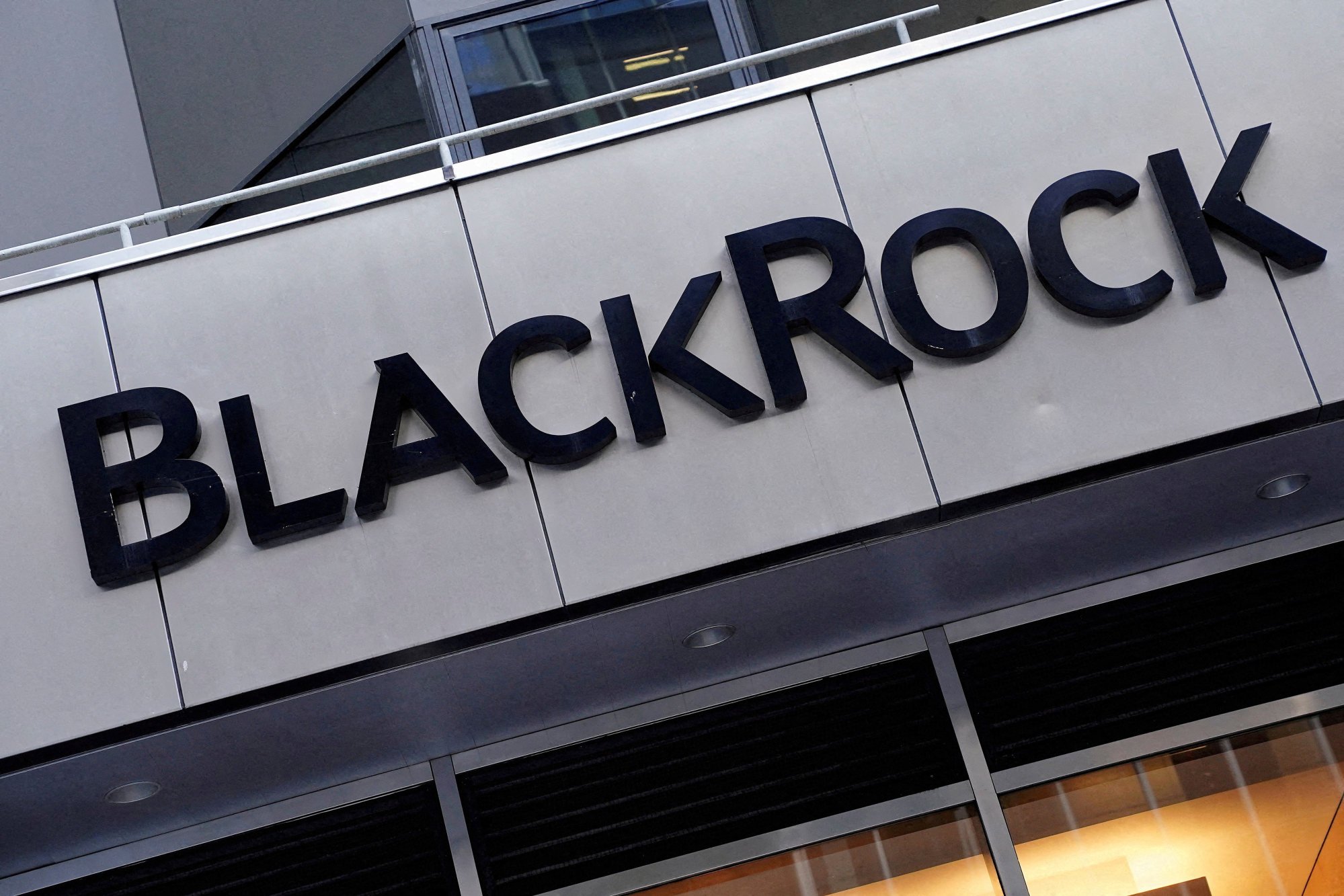A deal by Hong Kong-based CK Hutchison Holdings to sell all its overseas ports to a consortium led by US firm BlackRock has taken a fresh twist, with the revelation that the new majority shareholder will not be American, but a low profile Italian-Swiss family with ambitions to control global shipping.
Sources told the Post that the Aponte family was the mysterious driving force behind the Mediterranean Shipping Company (MSC) that aimed to solidify its dominance at sea and continue the consolidation of container shipping with the US$23 billion deal to acquire a majority stake in CK Hutchison’s overseas port operations.
The family business owns the world’s largest container line which has a 20.3 per cent market share, according to shipping data provider Alphaliner.
Do you have questions about the biggest topics and trends from around the world? Get the answers with SCMP Knowledge, our new platform of curated content with explainers, FAQs, analyses and infographics brought to you by our award-winning team.
MSC was spearheading the strategic acquisition of 41 port terminals across 22 countries through its arm, Terminal Investment Limited (TiL), in partnership with investment giant BlackRock, a source said. This move signals the family’s aggressive ambition to control critical infrastructure underpinning global trade.
The deal, announced earlier this year, will see the BlackRock-led consortium take an 80 per cent stake in CK Hutchison’s port assets outside its home base. This massive portfolio includes major hubs in Europe, Asia and the Americas, positioning MSC as potentially the world’s largest container terminal operator.
For the Aponte family, this move represents a significant leap in its strategy of vertical integration, or ship to port operations. By establishing TiL in 2000, the family aimed to secure reliable berthing and terminal capacity for MSC’s burgeoning fleet, according to the company.
This latest acquisition dramatically expands that control, ensuring smooth operations and potentially lower costs for the shipping business.

Surinder Brrar, professor of practice in global shipping and logistics at Polytechnic University, noted that MSC was “still growing” and “needs to have the size growth in their terminals as well”.
“China is the largest source of cargo, hence China is super important to MSC’s growth plans,” Brrar said, adding that the “implication is that TiL will need to grow as large as possible, in line with MSC’s ambitions”.
The ports deal, however, is subject to regulatory approval, with potential scrutiny from authorities concerned about fair market competition.
“The port deal, in my view, is a continuation of the consolidation of the container shipping industry,” Brrar added.
“This has been going on for many decades now and we are slowly seeing the larger companies growing even larger and consolidating their market share.”
The partnership with BlackRock’s Global Infrastructure Partners highlights the scale and financial muscle behind the family’s ambitions, allowing MSC to leverage significant investment capital while retaining operational influence over these vital port facilities.
“However, the consolidation in shipping does not equal pricing power, as it is too easy to find substitutes. Rather, it is all about containing costs,” Brrar said.
“Hence the larger you get as a container shipping company, the better opportunities you have about reducing the per TEU [twenty-foot unit container] costs.”
MSC already boasts the largest fleet with 899 ships and a capacity of 6.47 million TEUs, according to Alphaliner, having overtaken Maersk as the world’s biggest shipper in January 2022.
Francis Lui Ting-ming, adjunct professor in the economics department at the Hong Kong University of Science and Technology, said he believed China might not be too concerned about MSC’s control over 41 of Hutchison’s 43 ports. Under the proposed deal, BlackRock will controversially take control of the other two ports, at either end of the Panama Canal.
“Although the MSC deal involves 41 ports, China should be less worried about those,” he said, as there was significant global port competition and governments could intervene through tariffs.
While expanding its global port footprint, MSC has also cultivated strong ties with mainland China, particularly in the shipbuilding sector. The company has placed numerous orders for new container vessels at mainland shipyards, including Zhoushan Changhong International Shipyard and Jiangsu New Hantong Ship Heavy Industry.
The move to acquire CK Hutchison’s ports, alongside the significant shipbuilding activities on the mainland, highlights the Apontes’ drive to expand their influence across the global supply chain.

By integrating port operations with their already formidable shipping network and strong manufacturing partnerships in China, they are positioning MSC for even greater control and efficiency in the movement of goods worldwide.
The Aponte family’s ambition to shape the future of global trade appears unwavering. Founder and group chairman Gianluigi Aponte and his wife Rafaela Aponte-Diamantidi built MSC from a single ship in 1970 into the world’s largest container shipping line.
Meanwhile, MSC Cruises is the world’s third-largest cruise brand as well as the leader in Europe, South America, the Middle East, and Southern Africa.
“Family is at the heart of the MSC Group of companies and everything they do. Our companies share a common heritage and strong values that sets them apart and defines their leadership,” Diego Aponte, MSC’s group president and son of the Aponte couple, was quoted as saying on MSC’s website.
“We have built a culture of loyalty and trust since 1970 that embraces a long-term outlook and being a responsible steward of the communities we serve.”
Alexa Aponte Vago, Diego’s sister, is MSC’s group chief financial officer.
The family’s wealth is substantial, with Forbes estimating Gianluigi Aponte’s net worth at US$35.8 billion as of Wednesday. Rafaela Aponte-Diamantidi, often cited as the world’s wealthiest self-made woman, has the same net worth, with the pair each owning a 50 per cent stake in MSC.
While Geneva-based MSC keeps its financial results private, Italian media reported that the company’s equity was €91 billion in 2022, with net profits of €36.2 billion.
While the figures appear credible, it remains difficult to confirm them with MSC. A spokesman for MSC in Italy was quoted as having dismissed the reports as “rumours”, adding that its balance sheet was confidential.
Swiss media cited US industry expert John McCown, who estimated MSC generated €26.6 billion in profits between June 2021 and June 2022, suggesting the company’s value was about €100 billion (US$114 billion).
Brrar, referring to MSC’s headquarters in Switzerland and Apontes’ residence in the country, said: “The ‘Italian’ involvement is simply via MSC’s origins of Mr Aponte. The business is Swiss owned and run.”
Some industry observers said seafarers “generally believe MSC has achieved great success primarily due to its strong relationships in political and business spheres”.
Billy Mak, a ship’s mate on an Orient Overseas Container Line (OOCL) vessel, also pointed to MSC’s swift decision-making, referring to the rapid fleet adjustments earlier this year, suggesting this agility gave the company an advantage in seizing opportunities like the CK Hutchison ports acquisition.
“Therefore, if there is an opportunity to purchase the terminal concessions controlled by Li Ka-shing, I believe [MSC] will not let it pass.”
OOCL is now part of China’s state-owned shipping giant Cosco, which took over the company from the family of Hong Kong’s former chief executive Tung Chee-hwa.
Additional reporting by Denise Tsang
More from South China Morning Post:
- BlackRock ‘eyes control of 2 Panama ports in Hutchison deal, MSC family 41 others’
- Hutchison’s Panama ports exit inevitable as game has changed, analysts say
- CK Hutchison’s control of Panama ports ‘undermines’ sovereignty, lawyers say
For the latest news from the South China Morning Post download our mobile app. Copyright 2025.





